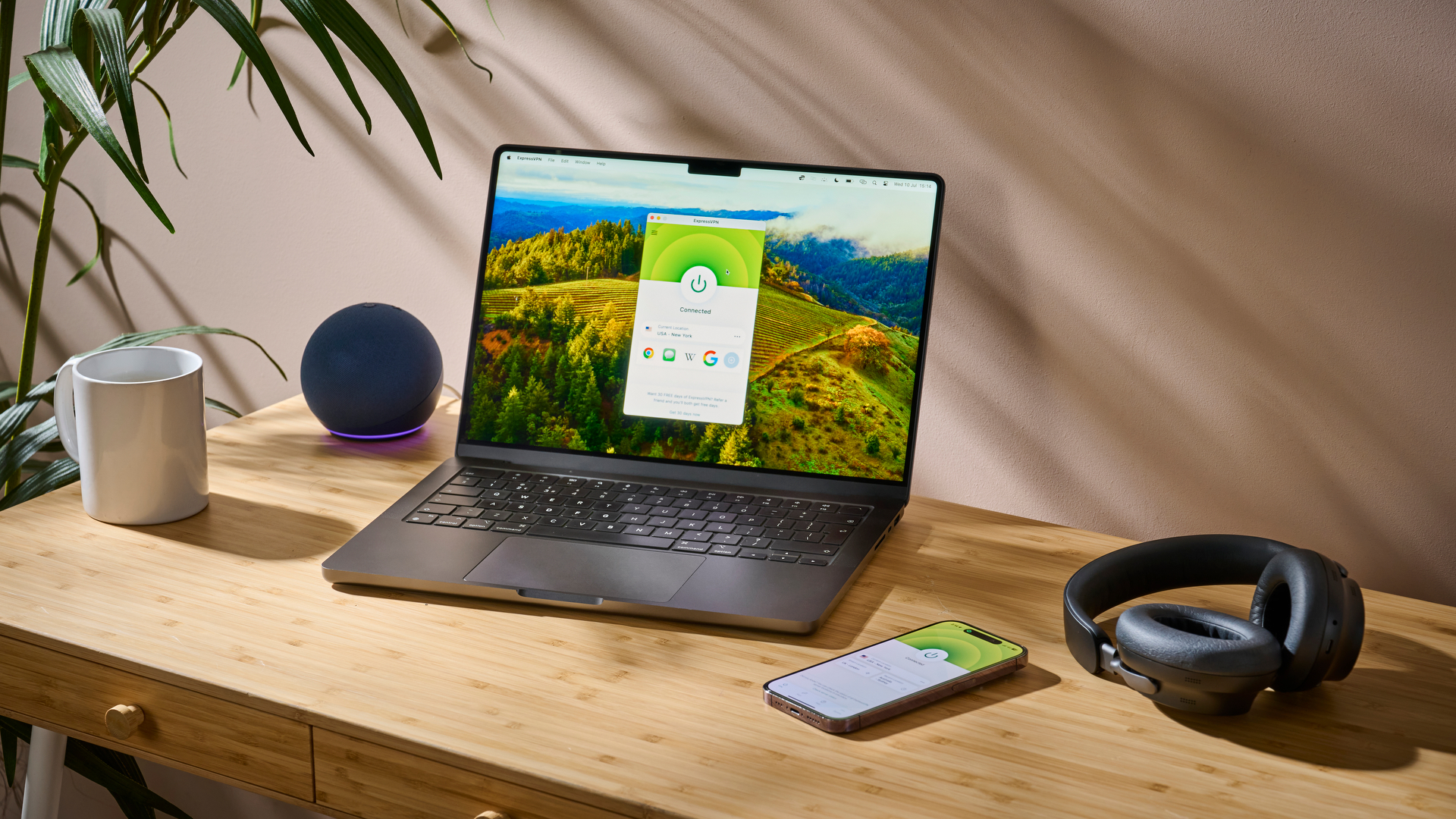
If, like me, you keep a keen eye on TechRadar's latest VPN test results, you'll be keen to hear that our latest round of testing is well and truly underway. First on our list to go under the microscope was ExpressVPN, and boy was it an interesting outcome.
While you'll need to check out our full ExpressVPN review to see how the provider currently holds up, we couldn't resist putting extra focus on some of the key changes we saw to a regular in our best VPNs list separately from the review itself.
Given how long ExpressVPN has sat among the most well-known and well-trusted VPNs available, you might be surprised to hear the news isn't always good, especially if you like your malware and phishing security to be tight. However, that's why the TechRadar VPN team and I put hundreds of hours a year into testing these services – both in true testing environments and day-to-day life – to find the minor details you might never expect.
No more speed complaints?
One of the biggest drawbacks we saw in ExpressVPN's service in our last round of testing was the download speeds it offered. Recording speeds of only 410 Mbps left the provider offering less than half the speeds of the likes of Surfshark, NordVPN, and even Proton VPN, putting it rather low in our fastest VPN rankings.
Now, however, this has changed, and it's not entirely ExpressVPN's fault. Following discussions between ExpressVPN and our testing expert Mike Williams, we managed to uncover an issue with our testing process where the results we were seeing for the provider were being limited by the machine they were tested on.
It turns out that ExpressVPN works better on multicore and multithread devices, and our previous virtual testing machine had therefore been limiting the achievable results for ExpressVPN.
After making some amends to our testing setup, we retested the service and found the results to be much closer to the competition. While still slightly behind the likes of NordVPN, Surfshark, and Proton VPN, ExpressVPN was able to provide speeds up to 898 Mbps – a huge improvement over our last tests.
Streaming snags
The next change we saw comes down solely to the level of detail with which we go about our VPN testing process. In the search for the best VPNs for streaming, we put all of our services through content unblocking tests across multiple regions and using the different protocols and settings available from different providers.
In this round of testing, ExpressVPN experienced a number of minor hiccups which were avoided by other providers. In Australia, Netflix and 10 Play were only able to be unblocked in one of its three locations, while Netflix in Japan was also only able to be unblocked in two out of three.
More often than not, this won't be an issue. Whether it's due to providers changing IP addresses or changes to backend technology, VPN services often experience times of difficulty which are quickly rectified when tackling streaming services. On this occasion, however, the fact that ExpressVPN was the only provider to experience these issues makes it a point of consideration if you're splitting hairs between the best VPNs for Netflix or your favorite streaming services.

More transparency than ever
One of the best ways to know if you can trust a VPN is by the audits it receives, and ExpressVPN is among the best for this. ExpressVPN now has 18 audits under its belt, which is seriously impressive, and its latest has happened since our last round of testing, yet again proving why we continue to rank ExpressVPN among the best VPNs for security.
Audits are a key aspect of creating trust between a user and a VPN service. They provide clarification and, more importantly, confirmation of a VPN provider's commitment and execution of its no-logs policy. They also ensure there are no new vulnerabilities in the service that could leave a user's data exposed.
While this isn't something that necessarily improves the service you'll receive from ExpressVPN if you sign up, it's proof that should you sign up, you're at little to no risk of losing your data to any form of attack, leak, or sale due to vulnerabilities or agreements with third parties.
To see our full breakdown of everything you need to know about ExpressVPN and what our tests showed, check out our full ExpressVPN review.







